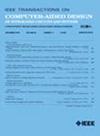BERN-NN-IBF:通过隐式伯恩斯坦形式和优化的张量运算增强神经网络边界传播
IF 2.7
3区 计算机科学
Q2 COMPUTER SCIENCE, HARDWARE & ARCHITECTURE
IEEE Transactions on Computer-Aided Design of Integrated Circuits and Systems
Pub Date : 2024-11-06
DOI:10.1109/TCAD.2024.3447577
引用次数: 0
摘要
神经网络已成为各个领域的强大工具,表现出非凡的经验性能,促使其在安全关键型应用中得到广泛采用,这反过来又需要严格的形式验证技术来确保其可靠性和鲁棒性。严格的边界传播在形式验证过程中起着至关重要的作用,它提供了精确的边界,可用于制定和验证安全性、鲁棒性和公平性等属性。虽然最先进的工具使用线性和凸近似来计算每个神经元输出的上/下限,但最近的进展表明,基于伯恩斯坦多项式的非线性近似会带来更严格的约束,但存在可扩展性问题。为此,本文介绍了 BERN-NN-IBF,这是对基于伯恩斯坦多项式的边界传播算法的重大改进。BERN-NN-IBF 有三大贡献:1) 对伯恩斯坦多项式进行内存高效编码,以扩展约束传播算法;2) 对新多项式编码进行优化的张量运算,以保持约束的完整性,同时提高计算效率;3) 使用二次多项式对 ReLU 激活函数进行更严格的欠逼近,以最大限度地减少逼近误差。通过综合测试,我们证明 BERN-NN-IBF 与原始 BERN-NN 和最先进的方法(包括在 VNN-COMPETITION 优胜者中使用的线性和凸编程)相比,实现了更严格的边界和更高的计算效率。本文章由计算机程序翻译,如有差异,请以英文原文为准。
BERN-NN-IBF: Enhancing Neural Network Bound Propagation Through Implicit Bernstein Form and Optimized Tensor Operations
Neural networks have emerged as powerful tools across various domains, exhibiting remarkable empirical performance that motivated their widespread adoption in safety-critical applications, which, in turn, necessitates rigorous formal verification techniques to ensure their reliability and robustness. Tight bound propagation plays a crucial role in the formal verification process by providing precise bounds that can be used to formulate and verify properties, such as safety, robustness, and fairness. While state-of-the-art tools use linear and convex approximations to compute upper/lower bounds for each neuron’s outputs, recent advances have shown that nonlinear approximations based on Bernstein polynomials lead to tighter bounds but suffer from scalability issues. To that end, this article introduces BERN-NN-IBF, a significant enhancement of the Bernstein-polynomial-based bound propagation algorithms. BERN-NN-IBF offers three main contributions: 1) a memory-efficient encoding of Bernstein polynomials to scale the bound propagation algorithms; 2) optimized tensor operations for the new polynomial encoding to maintain the integrity of the bounds while enhancing computational efficiency; and 3) tighter under-approximations of the ReLU activation function using quadratic polynomials tailored to minimize approximation errors. Through comprehensive testing, we demonstrate that BERN-NN-IBF achieves tighter bounds and higher computational efficiency compared to the original BERN-NN and state-of-the-art methods, including linear and convex programming used within the winner of the VNN-COMPETITION.
求助全文
通过发布文献求助,成功后即可免费获取论文全文。
去求助
来源期刊
CiteScore
5.60
自引率
13.80%
发文量
500
审稿时长
7 months
期刊介绍:
The purpose of this Transactions is to publish papers of interest to individuals in the area of computer-aided design of integrated circuits and systems composed of analog, digital, mixed-signal, optical, or microwave components. The aids include methods, models, algorithms, and man-machine interfaces for system-level, physical and logical design including: planning, synthesis, partitioning, modeling, simulation, layout, verification, testing, hardware-software co-design and documentation of integrated circuit and system designs of all complexities. Design tools and techniques for evaluating and designing integrated circuits and systems for metrics such as performance, power, reliability, testability, and security are a focus.

 求助内容:
求助内容: 应助结果提醒方式:
应助结果提醒方式:


